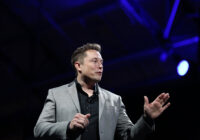Sanders and Clinton clash over whether Henry Kissinger should be giving foreign policy advice to US presidential candidates.
At the Democratic debate on February 11, presidential candidates Bernie Sanders and Hillary Clinton had a spirited exchange about an unlikely topic: the 92-year-old former US Secretary of State Henry Kissinger. Sanders berated Clinton for saying she appreciated the foreign policy mentoring she got from Kissinger. “I happen to believe,” said Sanders, “that Henry Kissinger was one of the most destructive secretaries of state in the modern history of this country.”
In one of Sanders’ rare outbursts of enmity, he added: “I am proud to say that Henry Kissinger is not my friend. I will not take advice from Henry Kissinger. And in fact, Kissinger’s actions in Cambodia, when the United States bombed that country, overthrew Prince Sihanouk, created the instability for Pol Pot and the Khmer Rouge to come in, who then butchered some 3 million innocent people, was one of the worst genocides in the history of the world. So count me in as somebody who will not be listening to Henry Kissinger.”
Clinton went on to defend Kissinger, using the example of China. “His opening up China and his ongoing relationships with the leaders of China is an incredibly useful relationship for the United States of America,” she insisted.
Sanders responded that Kissinger scared Americans about communist China, then opened up trade so US corporations could dump American workers and hire exploited, repressed Chinese.
First, he warned us about “the terrible, authoritarian, communist dictatorship,” groaned Sanders, “now he’s urging companies to shut down and move to China. Not my kind of guy.”
Now that many Americans, particularly young ones, are hearing the name of Henry Kissinger, they should learn some other reasons about why he would not make a good mentor.
Who is Henry Kissinger?
As secretary of state, Kissinger facilitated the horrendous 1973 coup against the democratically elected government of Salvador Allende that brought to power the ruthless Augusto Pinochet in Chile. As some 5,000 people were being detained and tortured in Chile’s National Stadium, Kissinger told Pinochet: “You did a great service to the West in overthrowing Allende.” The Pinochet dictatorship, which lasted for two decades, left over 3,000 people dead or missing, thousands tortured and hundreds of thousands driven into exile.
There was also Kissinger’s role in the brutal 1975 Indonesian invasion of East Timor, which took place just hours after he and President Gerald Ford visited Indonesia. They had given the Indonesian strongman the US green light—and the weapons—for an invasion that led to a 25-year occupation in which over 100,000 soldiers and civilians were killed or starved to death. The United Nations’ Commission for Reception, Truth and Reconciliation in East Timor (CAVR) stated that US “political and military support were fundamental to the Indonesian invasion and occupation” of East Timor.
The report by the United Nations Commission on Human Rights describes the horrific consequences of that invasion. It includes gang rape of female detainees following periods of prolonged sexual torture; placing women in tanks of water for prolonged periods, including submerging their heads, before being raped; the use of snakes to instill terror during sexual torture; and the mutilation of women’s sexual organs, including insertion of batteries into vaginas and burning nipples and genitals with cigarettes.
From 1969 through 1973, it was Kissinger, along with President Richard Nixon, who oversaw the slaughter in Vietnam, Cambodia and Laos—killing perhaps 1 million people during this period. He was the one who gave the order for the secret bombing of Cambodia. Kissinger is on tape saying: “[Nixon] wants a massive bombing campaign in Cambodia. He doesn’t want to hear anything about it. It’s an order, to be done. Anything that flies on anything that moves.”
In 2001, the French Judge Roger Le Loire issued a warrant to have Kissinger appear before his court to account for his actions. When Kissinger received the summons at the Ritz Hotel in Paris, he fled the country. More indictments followed from Spain, Argentina and Uruguay—even a civil suit in Washington, DC.
The late writer Christopher Hitchens, in The Trial of Henry Kissinger, skewers the former secretary of state for ordering or sanctioning the destruction of civilian populations, the assassination of “unfriendly” politicians and the kidnapping and disappearance of soldiers, journalists and clerics who got in his way. He holds Kissinger responsible for war crimes that range from the deliberate mass killings of civilian populations in Indochina, to collusion in mass murder and assassination in Bangladesh, the overthrow of the democratically elected government in Chile, and the incitement and enabling of genocide in East Timor.
Hitchens was a lot harder on Kissinger than the civil Bernie Sanders. “Kissinger should have the door shut in his face by every decent person and should be shamed, ostracized, and excluded,” Hitchens said. “No more dinners in his honor; no more respectful audiences for his absurdly overpriced public appearances; no more smirking photographs with hostesses and celebrities; no more soliciting of his worthless opinions by sycophantic editors and producers.”
Hitchens could have added another category of people who shouldn’t solicit Kissinger’s dangerous opinions: presidential candidates.
The views expressed in this article are the author’s own and do not necessarily reflect Fair Observer’s editorial policy.
Photo Credit: Everett Collection / Shutterstock.com
 We bring you perspectives from around the world. Help us to inform and educate. Your donation is tax-deductible. Join over 400 people to become a donor or you could choose to be a sponsor.
We bring you perspectives from around the world. Help us to inform and educate. Your donation is tax-deductible. Join over 400 people to become a donor or you could choose to be a sponsor.
Support Fair Observer
We rely on your support for our independence, diversity and quality.
For more than 10 years, Fair Observer has been free, fair and independent. No billionaire owns us, no advertisers control us. We are a reader-supported nonprofit. Unlike many other publications, we keep our content free for readers regardless of where they live or whether they can afford to pay. We have no paywalls and no ads.
In the post-truth era of fake news, echo chambers and filter bubbles, we publish a plurality of perspectives from around the world. Anyone can publish with us, but everyone goes through a rigorous editorial process. So, you get fact-checked, well-reasoned content instead of noise.
We publish 3,000+ voices from 90+ countries. We also conduct education and training programs
on subjects ranging from digital media and journalism to writing and critical thinking. This
doesn’t come cheap. Servers, editors, trainers and web developers cost
money.
Please consider supporting us on a regular basis as a recurring donor or a
sustaining member.
Will you support FO’s journalism?
We rely on your support for our independence, diversity and quality.







